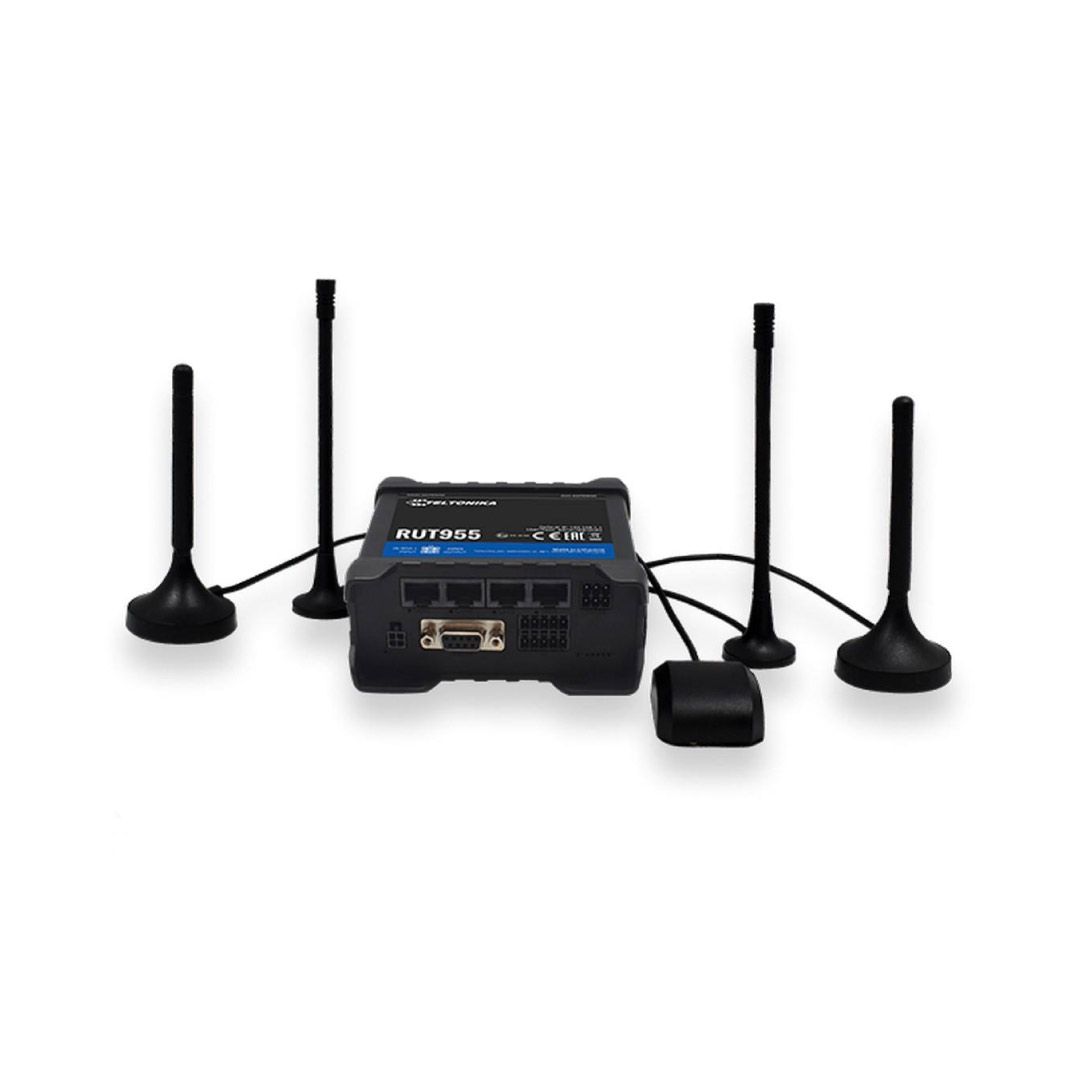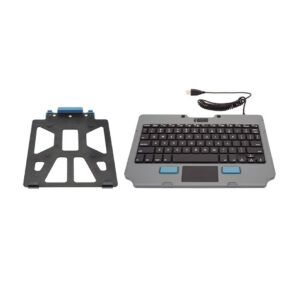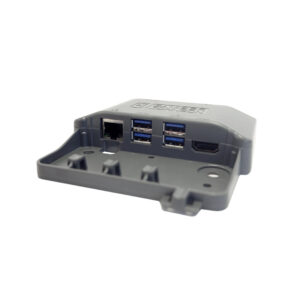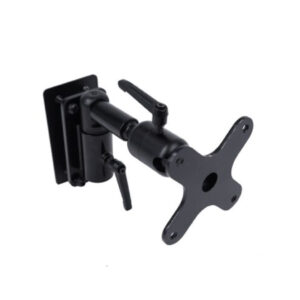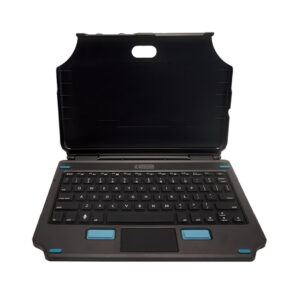Tööstuslik LTE Wifi Ruuter RUT955
264.00€ 212.90€ km-ta
- 2 x SIM
- 2.4GHz
- 3xEthernet
- 802.11b/g/n
- I/O
- RS232
- RS485
- GNSS
- -40°C-75°C
- IP30
- komplektis kinnitused ja antennid
Laos
Kirjeldus
MOBILE
- Mobile module: 4G (LTE) – Cat 4 up to 150 Mbps, 3G – Up to 42 Mbps, 2G – Up to 236.8 kbps
- SIM switch: 2 SIM cards, auto-switch cases: weak signal, data limit, SMS limit, roaming, no network, network denied, data connection fail, SIM idle protection
- Status: Signal strength, SINR, RSRP, RSRQ, Bytes sent/received
- Passthrough: Router assigns its mobile WAN IP address to another device on LAN
- Bridge: Direct connection (bridge) between mobile ISP and device on LAN
- APN: Auto APN
- SMS: SMS status, SMS configuration, send/read SMS via HTTP POST/GET, EMAIL to SMS, SMS to EMAIL, SMS to HTTP, SMS to SMS, scheduled SMS, SMS autoreply, SMPP
- Black/White list: Operator black/white list
- Multiple PDN (optional): Possibility to use different PDNs for multiple network access and services
- Band management: Band lock, Used band status display
WIRELESS
- Wireless mode: IEEE 802.11b/g/n, Access Point (AP), Station (STA)
- WiFi: WPA2-Enterprise (with external/internal Radius server), WPA2-PSK, WPA-PSK, WEP, MAC Filter
- WiFi security: WPA2-Enterprise – PEAP, TLS, TTLS. AES-CCMP, TKIP, Auto Cipher modes. Client separation
- SSID: SSID stealth mode and access control based on MAC address
- WiFi users: up to 100 simultaneous connections
- Wireless Hotspot: Captive portal (Hotspot), internal/external Radius server, built in customizable landing page
ETHERNET
- WAN: 1 x WAN port (can be configured to LAN) 10/100 Mbps, comply IEEE 802.3, IEEE 802.3u standards, supports auto MDI/MDIX
- LAN: 3 x LAN ports, 10/100 Mbps, comply IEEE 802.3, IEEE 802.3u standards, supports auto MDI/MDIX
NETWORK
- Routing: Static routing, Dynamic routing (BGP, OSPF v2, RIP v1/v2)
- Network protocols: TCP, UDP, IPv4, IPv6, ICMP, NTP, DNS, HTTP, HTTPS, FTP, SMTP, SSL v3, TLS, ARP, VRRP, PPP, PPPoE, UPNP, SSH, DHCP, Telnet, SMPP, MQTT, Wake On Lan (WOL)
- VoIP passthrough support: H.323 and SIP-alg protocol NAT helpers, allowing proper routing of VoIP packets
- Connection monitoring: Ping Reboot, Periodic Reboot, LCP and ICMP for link inspection
- Firewall: Port forward, traffic rules, custom rules
- DHCP: Static and dynamic IP allocation, DHCP Relay
- QoS / Smart Queue Management (SQM): Traffic priority queuing by source/destination, service, protocol or port, WMM, 802.11e
- DDNS: Supported >25 service providers, others can be configured manually
- Network backup: VRRP, Mobile, Wired and WiFi WAN options, each of which can be used as backup, using automatic Failover
- Load balancing: Balance your internet traffic over multiple WAN connections
- NetSnapper (optional): Mobile connection management, data compression VPN client (not available in standard FW)
- SSHFS (optional): Possibility to mount remote file system via SSH protocol (not available in standard FW)
SECURITY
- Authentication: Pre-shared key, digital certificates, X.509 certificates
- Firewall: Pre-configured firewall rules can be enabled via web-ui, unlimited firewall configuration via CLI; DMZ; NAT; NAT-T
- Attack prevention: DDOS prevention (SYN flood protection, SSH attack prevention, HTTP/HTTPS attack prevention), port scan prevention ( SYN-FIN, SYN-RST, X-mas, NULL flags, FIN scan attacks)
- WiFi security: WPA2-Enterprise – PEAP, TLS, TTLS. AES-CCMP, TKIP, Auto Cipher modes. Client separation
- VLAN: Port based and tag based VLAN separation
- Mobile quota control: Set up custom data limits for both SIM cards
- WEB filter: Blacklist for blocking out unwanted websites, whitelist for specifying allowed sites only
- Access control: Flexible access control of TCP, UDP, ICMP packets, MAC address filter
VPN
- OpenVPN: Multiple clients and server can be running simultaneously, 12 encryption methods
- OpenVPN Encryption: DES-CBC, RC2-CBC, DES-EDE-CBC, DES-EDE3-CBC, DESX-CBC, BF-CBC, RC2-40-CBC, CAST5-CBC, RC2-64-CBC, AES-128-CBC, AES-192-CBC, AES-256-CBC
- IPsec: IKEv1, IKEv2, supports up to 4 x VPN IPsec tunnels (instances), with 5 encryption methods (DES, 3DES, AES128, AES192, AES256)
- GRE: GRE tunnel
- PPTP, L2TP: Client/Server services can run simultaneously
- Stunnel: Proxy designed to add TLS encryption functionality to existing clients and servers without any changes in the programs’ code
- SSTP: SSTP client instance support
- ZeroTier: ZeroTier VPN
MODBUS
- MODBUS TCP SLAVE ID range: 1-255
- Allow Remote Access: Allow access through WAN
- Custom registers: Modbus TCP custom register block requests, which read/write to a file inside the router, and can be used to extend Modbus TCP Slave functionality
MODBUS TCP MASTER
- Supported functions: 01, 02, 03, 04, 05, 06, 15, 16
- Supported data formats: 8 bit: INT, UINT; 16 bit: INT, UINT (MSB or LSB first); 32 bit float (Big endian, Big endian with byte-swapped, Little endian, Little endian with byte-swapped)
- MODBUS RTU MASTER (RS232)
- Supported baud rates: From 300 to 115200
- Supported functions: 01, 02, 03, 04, 05 (only for alarms), 06 (only for alarms), 15 (only for alarms), 16 (only for alarms)
- Number of data bits: From 5 to 8
- Number of stop bits: 1 or 2
- Parity: None, Even, Odd
- Flow: None, RTS/CTS, Xon/Xoff
- Duplex: Full duplex
- MODBUS RTU MASTER (RS485)
- Supported baud rates: From 300 to 115200
- Supported functions: 01, 02, 03, 04, 05 (only for alarms), 06 (only for alarms), 15 (only for alarms), 16 (only for alarms)
- Number of data bits: 8
- Number of stop bits: 1
- Parity: None, Even, Odd
- Flow: None, Xon/Xoff
- Duplex: Half duplex
- MODBUS DATA TO SERVER
- Protocol: HTTP(S), MQTT, Azure MQTT
- MQTT GATEWAY
- MQTT gateway: Allows sending commands and receiving data from Modbus Master through MQTT broker
MONITORING & MANAGEMENT
- WEB UI: HTTP/HTTPS, status, configuration, FW update, CLI, troubleshoot, event log, system log, kernel log
- FOTA: Firmware update from server, automatic notification
- SSH: SSH (v1, v2)
- SMS: SMS status, SMS configuration, send/read SMS via HTTP POST/GET
- Call: Reboot, Status, WiFi on/off, Mobile data on/off, Output on/off, answer/hang-up with a timer
- TR-069: OpenACS, EasyCwmp, ACSLite, tGem, LibreACS, GenieACS, FreeACS, LibCWMP, Friendly tech, AVSystem
- MQTT: MQTT Broker, MQTT publisher
- SNMP: SNMP (v1, v2, v3), SNMP trap
- JSON-RPC: Management API over HTTP/HTTPS
- MODBUS: MODBUS TCP status/control
- RMS: Teltonika Remote Management System (RMS)
IoT PLATFORMS
- Cloud of Things: Allows monitoring of: Device data, Mobile data, Network info, Availability
- ThingWorx: Allows monitoring of: WAN Type, WAN IP Mobile Operator Name, Mobile Signal Strength, Mobile Network Type
- Cumulocity: Allows monitoring of: Device Model, Revision and Serial Number, Mobile Cell ID, ICCID, IMEI, Connection Type, Operator, Signal Strength, WAN Type and IP
- Azure IoT Hub: Can send device IP, Number of bytes send/received/ 3G connection state, Network link state, IMEI, ICCID, Model, Manufacturer, Serial, Revision, IMSI, Sim State, PIN state, GSM signal, WCDMA RSCP WCDMA EC/IO, LTE RSRP, LTE SINR, LTE RSRQ, CELL ID, Operator, Operator number, Connection type, Temperature, PIN count to Azure IoT Hub server
SYSTEM CHARACTERISTICS
- CPU: Atheros Wasp, MIPS 74Kc, 550 MHz
- RAM: 128 MB, DDR2
- FLASH memory: 16 MB SPI Flash
FIRMWARE / CONFIGURATION
- WEB UI: Update FW from file, check FW on server, configuration profiles, configuration backup, restore point
- FOTA: Update FW/configuration from server
- RMS: Update FW/configuration for multiple devices
- Keep settings: Update FW without losing current configuration
FIRMWARE CUSTOMIZATION
- Operating system: RutOS (OpenWrt based Linux OS)
- Supported languages: Busybox shell, Lua, C, C++
- Development tools: SDK package with build environment provided
LOCATION TRACKING
- GNSS: GPS, GLONASS, BeiDou, Galileo and QZSS
- Coordinates: GNSS coordinates via WebUI, SMS, TAVL, RMS
- NMEA: NMEA 0183
- NTRIP: NTRIP protocol (Networked Transport of RTCM via Internet Protocol)
- Server software: supported server software TAVL, RMS
- Mobile Network Geolocation: Location without using GPS, get approximate location based on mobile tower on RMS
- Geofencing: Configurable multiple geofence zones
SERIAL
- RS232: DB9 connector, full RS232 (with RTS, CTS)
- RS485: RS485 Full Duplex (4 wires) and Half Duplex (2 wires). 300-115200 baud rate
- Serial functions: Console, Serial over IP, Modem, Modbus gateway, NTRIP Client
INPUT/OUTPUT
- Input: 1 x digital input (0 – 3 V), 1 x digital galvanically isolated input (0 – 30 V), 1 x analog input (0 – 24 V), 1 x Digital non-isolated input (on 4 pin power connector)
- Output: 1 x digital open collector output (30 V, 250 mA), 1 x SPST relay output (40 V, 4 A), 1 x Digital open collector output (30 V, 300 mA, on 4 pin power connector)
- Events: SMS, EMAIL, RMS
USB
- Data rate: USB 2.0
- Applications: Samba share, custom scripts
- External devices: Possibility to connect external HDD, flash drive, additional modem, printer
- Storage formats: FAT, FAT32, NTFS
SD CARD
- Physical size: Micro SD
- Applications: Samba share, custom scripts
- Capacity: Up to 32 GB
POWER
- Connector: 4 pin industrial DC power socket
- Input voltage range: 9 – 30 VDC (4 pin industrial socket), reverse polarity protection; surge protection >31 VDC 10us max
- PoE (passive): Passive PoE over spare pairs. Possibility to power up through LAN port, not compatible with IEEE802.3af and 802.3at standards
- Power consumption: < 2 W idle, < 7 W Max
PHYSICAL INTERFACES (PORTS, LEDS, ANTENNAS, BUTTONS, SIM)
- Ethernet: 4 x RJ45 ports, 10/100 Mbps
- I/O’s: 10 Inputs/Outputs pin connector, 2 Inputs/Outputs pin on 4 pin power connector (available from HW revision 1600)
- Status LEDs: 1 x bi-color connection status LED, 5 x connection strength LEDs, 4 x LAN status LEDs, 1 x Power LED
- SIM: 2 x SIM slots (Mini SIM – 2FF), 1.8 V/3 V, external SIM holders, eSIM (Optional)
- Power: 4 pin power connector with 2 pins for Input/Output
- Input/output: 10 pin industrial socket for inputs/outputs
- Antennas: 2 x SMA for LTE, 1 x SMA for GNSS, 2 x RP-SMA for WiFi antenna connectors
- USB: USB A port for external devices
- SD card: Micro SD card slot
- RS232: DB9 socket for full-featured RS232
- RS485: 6 pin industrial socket for 2/4 wire RS485
- Reset: Reset/restore to default button
PHYSICAL SPECIFICATION
- Casing material: Aluminium housing, plastic panels
- Dimensions: 100 x 110 x 50 mm (L x W x H)
- Weight: 287 g
- Mounting options: DIN rail (can be mounted on two sides), flat surface placement
OPERATING ENVIRONMENT
- Operating temperature: -40 °C to 75 °C
- Operating humidity: 10% to 90% non-condensing
- Ingress Protection Rating: IP30
- MTBF: 230000 h
REGULATORY & TYPE APPROVALS
- Regulatory: CE/RED, FCC, IC/ISED, EAC, RCM, PTCRB, RoHS, WEEE, Wi-Fi Alliance CE/RED, FCC, IC, PTCRB, RCM, EAC, CCC, RoHS, WEEE, IP rating, Anatel, GCF, REACH, E-mark, DNV GL, ECE Regulation 118, Morocco ANRT, Thailand NBTC, Ukraine UCRF, SDPPI (POSTEL), WiFi Certified, Modbus Conformance
- Operator: AT&T, Verizon
- Vehicle: ECE R10 (E-mark), ECE R118
EMI IMMUNITY
- Standards: Draft EN 301 489-1 V2.2.0, Draft EN 301 489-17 V3.2.0, Draft EN 301 489-19 V2.1.0, Draft EN 301 489-52 V1.1.0 | FCC 47 CFR Part 15B (2017), ANSI C63.4 (2014)
- ESD: EN61000-4-2:2009
- RS: EN 61000-4-3:2006 + A1:2008 + A2:2010
- EFT: EN 61000-4-4:2012
- Surge immunity (AC Power Line): EN 61000-4-5:2006
- Surge immunity (Ethernet ports): EN 61000-4-5:2014, clause 7.1 of ITU-T K21
- Transient and surges: ISO 7632-2:2004
- CS: EN 61000-4-6:2009
- DIP: EN 61000-4-11:2004
RF
- Standards
- EN 300 328 V2.1.1, EN 301 511 V12.5.1, EN 301 908-1 V11.1.1, EN 301 908-2 V11.1.1, EN 301 908-13 V11.1.1, EN 303 413 V1.1.0
- AS/CA S042.1:2018, AS/ACIF S042.3:2005, AS/CA S042.4:2018, AS/NZS 4268:2017
- FCC 47 CFR Part 15C (2017), FCC 47 CFR Part 2 (2017), FCC 47 CFR Part 22H (2017), FCC 47 CFR Part 24E (2017), FCC 47 CFR Part 27C (2017)
- RSS-Gen Issue 4 (2014), RSS-247 Issue 2 (2017), RSS-132 Issue 3 (2013), RSS-133 Issue 6 (2013), RSS-139 Issue 3, RSS-130 Issue 1
SAFETY
- Standards
- IEC 60950-1:2005 (Second Edition) + Am 1:2009 + Am 2:2013
- AS/NZS 60950.1:2015
- EN 50665:2017, EN 62311:2008
- FCC 47 CFR Part 1 1.1310
- RSS-102 Issue 5 (2015)
ENVIRONMENTAL
- Ingress Protect: LST EN 60529:1999+A1+AC:2002
- Vibration: Class guideline-DNVGL-CG-0339:2016 | EN 60068-2-6:2008

